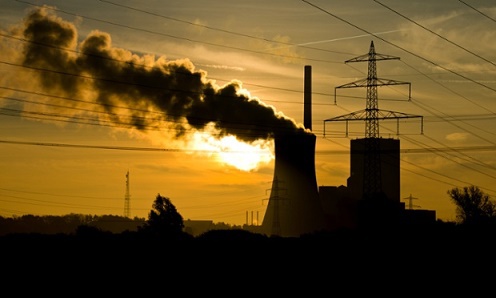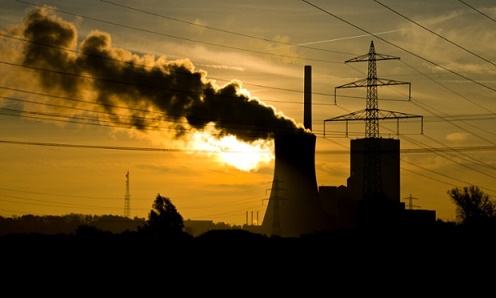
World carbon emission marked an exceptional no growth in 2014, for the first time ever in past 4 decades. Despite increasing carbon emissions, IEA states that the carbon emission levelled off in 2014, may be due to the positive impact of clean energy policies across the globe. This is a clear indication that the measures taken to tackle climate change were much more effective than anticipated. With an unprecedented shift of energy consumption in China, the world’s largest emitter of carbon is the most vital reason behind the stalled growth of carbon levels. China overtook the US and became the largest contributor for greenhouse gas emission in 2007. But, China has now become the largest investor in renewable energy across the globe. Over the past decade, the nation has invested more than $400 billion in clean energy.
China has reduced the usage of coal that serves as major source of carbon emission and installed more renewable sources of energy including hydroelectricity, solar and wind power. China’s coal consumption dropped by 2.9% in 2014 which in turn resulted in a decline of 1% in carbon emission. Moreover, the implementation of energy efficient industry standards, shutdown of old factories and steps taken to move away from heavy manufacturing has led to a drop in growth of electric consumption from 10% to around 3-4% per year. One more reason that led to a halt in emission is that, nations in OECD group are aiming to encourage sustainable growth through installation of clean energy plants and set strict regulations for fossil fuel energy. According to IEA findings, the economies of OECD nations recorded a growth of around 7%, while the greenhouse emissions declined 4% in the past 5 years.
The US have also played an active role by decarbonizing production of electricity. The boom in shale production is one of the vital factors while the importance of other factors also cannot be overlooked. The European Union witnessed an upsurge in clean energy installations, while almost flat energy demand has pulled down the use of fossil fuels.
Strict energy policies are particularly important for the developing economies. If necessary steps are taken too curb carbon emission, it will be very easier and cost effective to avoid 2C of warming. Representatives from different countries will meet at Paris Summit that will be held in December 2015 to sign an international agreement on climate change. The EU decided to submit the target of cutting greenhouse emission by nearly 40% by 2030 down from its 1990’s level and thus continues its lead in the battle against climate change.
One of the striking points that dominated the past was that, each major economy was reluctant to emission cuts with a fear that other country will not adopt the same steps and thereby will take an economic advantage over it. But, with large economies like China, the US and Europe stepping forward to control greenhouse emissions is expected to facilitate to knock out such fear in Paris Agreement.
China has reduced the usage of coal that serves as major source of carbon emission and installed more renewable sources of energy including hydroelectricity, solar and wind power. China’s coal consumption dropped by 2.9% in 2014 which in turn resulted in a decline of 1% in carbon emission. Moreover, the implementation of energy efficient industry standards, shutdown of old factories and steps taken to move away from heavy manufacturing has led to a drop in growth of electric consumption from 10% to around 3-4% per year. One more reason that led to a halt in emission is that, nations in OECD group are aiming to encourage sustainable growth through installation of clean energy plants and set strict regulations for fossil fuel energy. According to IEA findings, the economies of OECD nations recorded a growth of around 7%, while the greenhouse emissions declined 4% in the past 5 years.
The US have also played an active role by decarbonizing production of electricity. The boom in shale production is one of the vital factors while the importance of other factors also cannot be overlooked. The European Union witnessed an upsurge in clean energy installations, while almost flat energy demand has pulled down the use of fossil fuels.
Strict energy policies are particularly important for the developing economies. If necessary steps are taken too curb carbon emission, it will be very easier and cost effective to avoid 2C of warming. Representatives from different countries will meet at Paris Summit that will be held in December 2015 to sign an international agreement on climate change. The EU decided to submit the target of cutting greenhouse emission by nearly 40% by 2030 down from its 1990’s level and thus continues its lead in the battle against climate change.
One of the striking points that dominated the past was that, each major economy was reluctant to emission cuts with a fear that other country will not adopt the same steps and thereby will take an economic advantage over it. But, with large economies like China, the US and Europe stepping forward to control greenhouse emissions is expected to facilitate to knock out such fear in Paris Agreement.


















